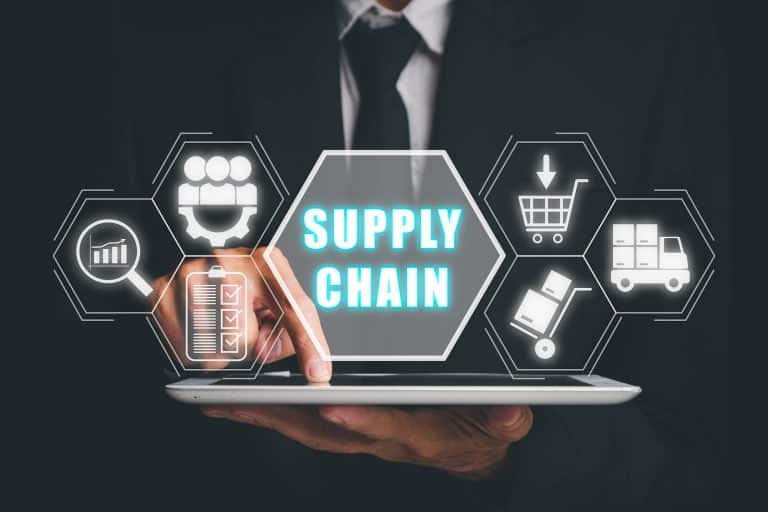Future of blockchain is interesting for all concerned.
Table of Contents
ToggleRecent years have seen cryptocurrencies like Bitcoin and Etherium much in the news. At first, this was with excitement and enthusiasm, as the initial rush of trading saw the stock market value of these digital tokens skyrocketing. Later on, the tone degenerated to one of skepticism and dismay, as market valuations fluctuated wildly, and the burgeoning sector displayed worrying signs of instability.
Yet even as the cryptocurrency market tends toward a bubble, one thing has remained stable and promising: its underlying foundation of technology, the blockchain.
Blockchain talent became one of the most sought-after skill sets globally, with the demand increasing by almost 2,000 percent from 2017 to 2020. According to some analysts, global investments in blockchain may reach $11.7 billion in 2022. The research firm Gartner reckons that by that same year, more than a billion people will have some data about them stored on a Blockchain — even though they may not be aware of it.
So, is blockchain the future? In this article, we’ll be looking at some of the underlying basics of blockchain future applications and predictions and trends that may shape the future of blockchain.
What is Blockchain?
Blockchain or distributed ledger is a shared medium that facilitates the process of recording transactions and tracking assets in a business network. These assets may be physical commodities such as cash, cars, houses, or virtual items like intellectual property, patents, or branding.
Depending on the blockchain, participants in a network may view previous ledger entries and record new entries. However, most blockchain networks have complex rules for the addition of new groups of records, or “blocks,” to the chain of previous records. These blocks and their contents are protected by powerful cryptography, ensuring that previous transactions within the network can be neither forged nor destroyed — a property known as “immutability.”
Blockchain offers a very high level of security, thanks to the independent verification processes that take place throughout the member computers on a blockchain network. In the case of cryptocurrencies and digital tokens, this verification is used to approve transaction blocks before they are added to the chain. But this mechanism can apply to other types of verification procedures, including identity verification and many other applications.
As a result, blockchain may potentially be used to securely and efficiently transfer user data across platforms and systems. Any industry whose transactions require a permanent record and trust from all parties involved can benefit from and potentially use the technology. Blockchain can also simplify paper-intensive processes that require an accounting ledger.
Current applications span a range of sectors, including finance, healthcare, and contract law — and new and future uses of blockchain are being proposed every day. As the adoption of blockchain technologies becomes more widespread, industry leaders envision blockchain integrating with advanced technologies, such as artificial intelligence (AI) and 5G networking.
Blockchain Future Trends
Several industry analysts have been charting possible paths for the future of blockchain. In the short to mid-term, these predictions deal with the relative immaturity of the technology and the ways in which it might pick up and gain more mainstream adoption and standardization. In this light, they project the following:
Future of Blockchain: Blockchain Startups will Continue to Fail
Due to the immaturity of blockchain implementations, many startup concepts fail to meet investors’ expectations or the objectives of business adopters. Consequently, most traditional businesses will continue to keep an eye on blockchain technology but won’t plan any definitive actions, preferring to wait for concrete demonstrations of success in other projects affecting their industry.
Banking and Finance will Lead Blockchain Application Adoption
Since blockchain technology was developed to underpin the cryptocurrency market, it’s not a huge leap for the concept to be applied in more mainstream financial services. Blockchain technology can enable banks to reduce excessive bureaucracy, conduct quicker transactions at lower costs, and improve security and confidentiality. In fact, by the end of this year, 77 percent of financial institutions are expected to adopt blockchain technology as part of an in-production system or process.
Banks will also be looking into launching regulated cryptocurrency to reduce the competitive advantage of standalone cryptocurrencies and achieve greater control over their own monetary policy. Notably, the Australian Securities Exchange is planning to use a new blockchain-based system to manage the Australian financial market at the end of 2020.
Blockchain Talent Will be in High Demand
With blockchain technology still relatively new, there are limited numbers of blockchain engineers and specialists. Talent in system design and blockchain infrastructure management will be in high demand as adoption increases, and organizations seek the skills necessary to enable them to overcome implementation hurdles.
Looking further ahead, forecasts for the future of blockchain focus on its increasing integration with emerging technology trends and issues concerning law and government. Specifically:
Blockchain will Integrate with IoT
Blockchain technology has the potential to provide a secure and scalable framework for communication between Internet of Things (IoT) devices. With a higher resistance to cyber-attacks than existing IoT security solutions, blockchain will also allow smart devices to quickly and cost-effectively make automated micro-transactions. Using smart contract mechanisms, IoT devices may facilitate transfers of money and data.
Future of Blockchain: A Greater Prevalence for Smart Contracts
In the blockchain ecosystem, smart contracts are computer programs that can oversee all aspects of an agreement, from facilitation through to execution. When the prescribed conditions are fully met, smart contracts can be entirely self-executing and self-enforcing. This mechanism can provide a more secure and more automated alternative to traditional contract law. Potential applications of smart contracts extend to almost any field of business in which contract law would normally apply.
Emergence of Wholesale and Retail Central Bank Digital Currencies (CBDCs)
A recent joint venture in Germany between the Deutsche Bundesbank and Deutsche Borse developed a functional prototype of a blockchain technology-based securities settlement platform that achieves delivery versus payment settlement of digital coins and securities. Venezuela has already launched a national cryptocurrency — petro (petromoneda), backed by its oil and mineral reserves.
Countries in Asia, the Middle East, and the Caribbean are beginning to experiment with Central Bank Digital Currencies, or CBDCs, in real-time. In future, we should expect to see continued expansion in wholesale CDBCs some initial ventures into retail CBDCs. Other types of assets and securities, such as central bond debentures for treasury bonds, are also potential avenues for digitalization and token implementation schemes.
Future of Blockchain: More Pragmatic Governance Models
Regulation and governance within the blockchain sector will begin to mature as adoption increases, and various applications prove their viability. New and more pragmatic governance models will help to standardize information from various sources and capture new and more robust data sets. This should enable large and diverse consortia to approach decision-making, permissioning schemes, and even payments in a more efficient manner.
Some Future Uses of Blockchain
As a growing ecosystem of legal and regulatory frameworks places higher demands on organizations to provide improved governance, there’s a growing need for robust privacy and data protection mechanisms. An emerging breed of blockchain solutions will use validation tools along with cryptographic anchors, IoT beacons, and oracles to create mechanisms that link digital assets to the physical world by automatically injecting outside data into networks. This approach reduces or even eliminates the reliance on human data entry, which is often prone to error and fraud.
Blockchain is already used to facilitate identity management and could potentially help maintain voter information and the proper functioning of electoral processes.
Blockchain technology also has the potential to provide a much quicker and cheaper alternative to traditional cross-border payment methods. Typical money remittance costs can be as high as 20% of the transfer amount, but blockchain could allow for costs of just a fraction of this, in addition to guaranteed transactions and real-time processing speeds.






